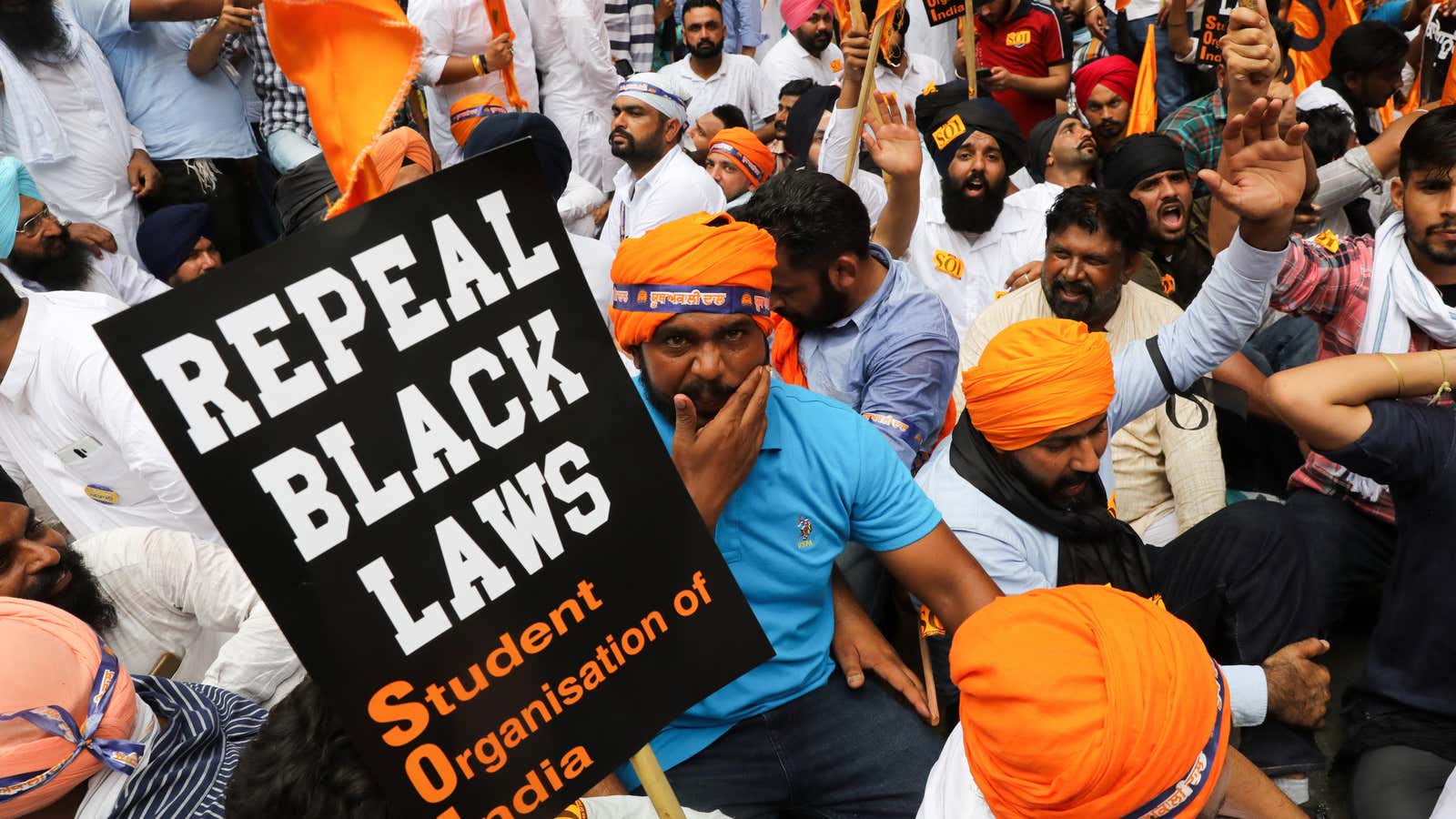Indian prime minister Narendra Modi today (Nov. 19) announced the withdrawal of three controversial farm laws after almost a year-long nationwide protests by a large section of the country’s farmer community.
“We have decided to repeal all three farm laws. We will start the constitutional process to repeal all the three laws in the parliament session that starts at the end of this month,” Modi said in a 20-minute address to the nation.
The laws were hastily passed in September 2020, sparking cries of a decline in legislative scrutiny. In January 2021 this year, the Supreme Court stayed their implementation. Several state legislatures like those of Punjab and Chhattisgarh counter them with bills of amendment while others, like in Kerala and West Bengal, passed resolutions demanding their complete withdrawal.
Political significance of Modi’s announcement
The prime minister chose Gurupurab, a day celebrating the birth of the first Sikh guru, Nanak, to make the announcement today. Thousands of farmers have been protesting against the three contentious laws. A large number of them come from Punjab, where most Sikhs are based. The state will hold legislative polls in a few months and has witnessed much political turmoil over the past few months.
Elections are also due in Uttar Pradesh, India’s most populous and politically significant state. A considerable segment of the protesters is also from the western part of this state.
Many of the protesters have camped along the borders of Delhi for the past year. Around 600 such farmers have died till now. The agitation took a particularly violent turn in Delhi on Jan. 26 this year when India celebrated its Republic Day.
Partisan voices have often dubbed the protesting farmers as “Khalistani”, referring to separatist forces believed to be active in Punjab.
The protesters believe the new laws are designed to help large corporations like Reliance Industries or the Adani Group, while eliminating the safeguards for farmers.
The new laws would have allowed market forces to venture freely into the farm sector in India, which is currently heavily regulated by the government.
